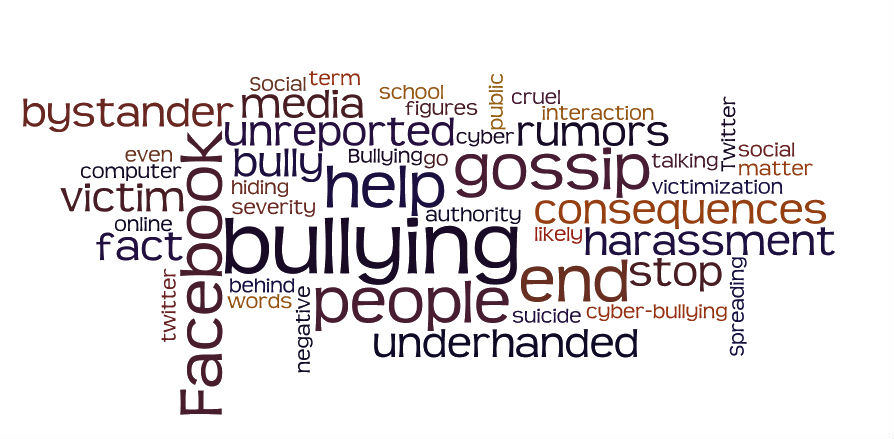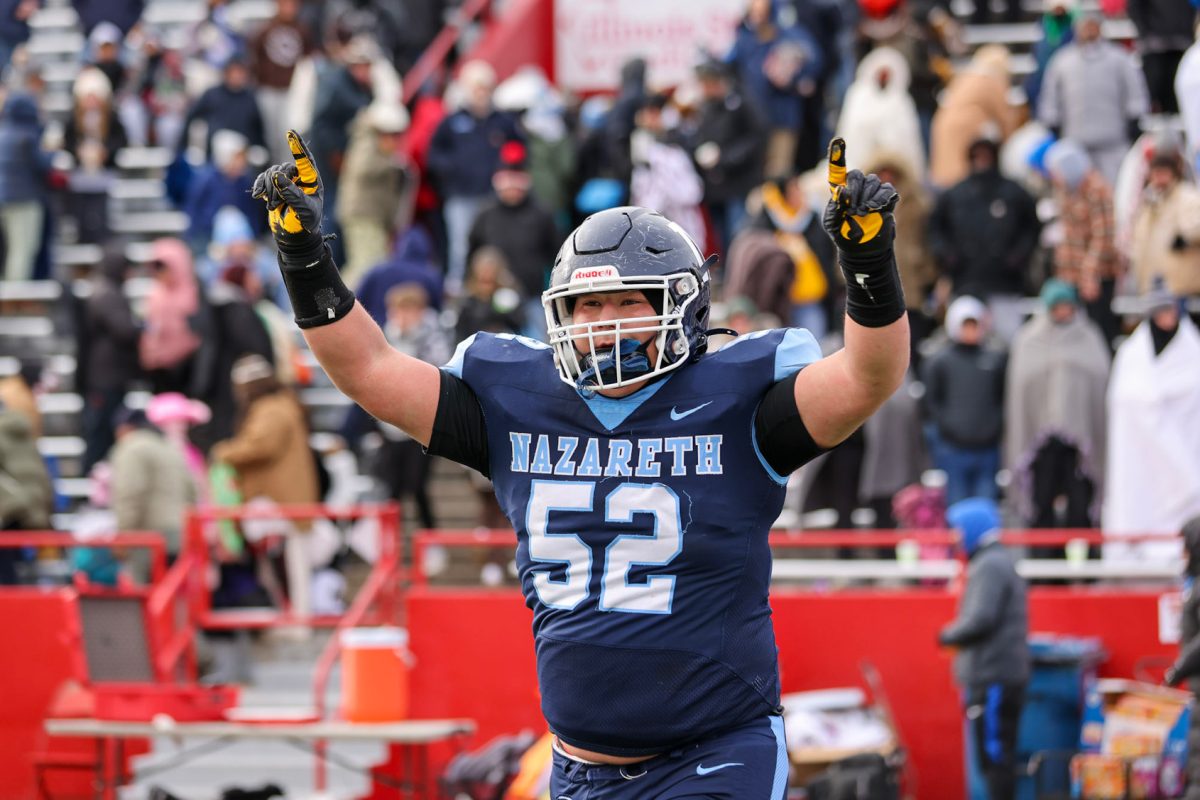Bullying has become so much more than the simplified definition we were all given in grade school. Sure people probably still steal some poor kid’s lunch money or push around the freshman who gets lost on his way to class or call others names, but this is high school and we’ve grown up. Now we find ourselves confronted with another form of bullying which generally doesn’t get the same coverage.
Let me start off by saying that I hate the term “bullying.” For as long as we can remember our peers have been classified by teachers and administrators as either bullies, victims, or bystanders and these archetypes have long become cliche from the repetition of this message and its overly simplified presentation. If you walked up to someone who blatantly victimized others and said “You’re a bully,” then they’d probably laugh in your face and ask what you were going to do about it, go “tattle” or “tell on them”? This is the immaturity that the word “bully” implies, and yet the issue is so much deeper than that.
Bullying (there really isn’t another word for it) takes on many forms, but in high school most of them are underhanded and cruel. Social media such as Facebook and Twitter have opened up entirely new avenues for harassment and victimization, even prompting the coining of the term “cyber bullying.” Spreading rumors and talking about people behind their back are far from new concepts, but with social media there is no limit to the amount of people they can reach in a significantly short amount of time. In the world of online interaction there is a much smaller chance that your words will bring negative consequences from authority figures. Studies show that most cases of cyber bullying go unreported and those which end up in the public eye become top stories because their severity caused the suicide of the victim. The fact of the matter is that people are more likely to bully while hiding behind a computer screen.
Internet confrontations rarely present themselves in live, face-to-face situations past a dirty look in the hallway but there are also more far reaching consequences in certain occurrences. There are times when these online events result in a large scale ostracizing of the victim and, even more frequently, the gossip which arises from the sheer number of people which saw the offending post or posts permeates their world, especially at a school as small as ours.
Once posts are made public there is no going back. Many people attest to reading through 30 to 50 comments on a Facebook status because of the drama and fighting which ensued there and still others on Twitter admit to “reTweeting” posts which insight similar drama.
Unsurprisingly, most bullying incidents in high school reportedly are committed by girls victimizing other girls. Of course there are plenty of incidents involving guys as well, but these tend to be more simplistic and not last as long or be as severe. Occurrences of male bullies in high school tend to fit into the stereotypical categories of classroom bullies such as stealing lunch money, pushing those they view as weak, name calling, or exclusion of others. This is in no way aiming to say that guys are so much better when it comes to their peer relationships, for they all too often go along with and take part in the bullying of those who have become the target of larger groups of people, especially if those people are their friends.
Girls are more underhanded and, arguably, crueler. What can really be done about this? “Girls will be girls,” right? Wrong. There is no excuse for the way girls treat each other. Jealousies, revenge for perceived wrongs, and other seemingly petty vendettas permeate the relationships of teenage girls and there are times when you have to ask yourself, “When did I get thrown into a bad remake of Mean Girls?” The depiction of cliques and the popular girls and the general hierarchy of high school in Mean Girls meant to be an exaggeration, taking the worst of all negative aspects of the high school atmosphere, but how different really is it from what we all have either seen or experienced ourselves?
Nazareth Academy prides itself on being a family, and luckily the victims of bullies have others to turn to who won’t turn their backs on them. There may not be many true cliques here who stick rigidly to their friend base and allow for no movement between factions, but there are certainly groups who deem themselves exclusive and tend to keep to themselves at lunch and in other social settings. Although this is true, many people do belong to multiple groups and clubs or sports and interact with others as well.
Naz also prides itself on the diversity represented in the student body. We all come from a variety of cities and towns from Chicago and its surrounding suburbs as well as varying socioeconomic backgrounds, but this can cause a disparity between a bully and their victim. Some victims may fear confronting their antagonist or telling the school about the problems their facing simply because the bully may be in better standing in one of the aforementioned areas. This is highly unfortunate because Nazareth is meant to be a safe haven and there should be no reason for anyone to fear coming forward to expose the wrongs being done to them. If this is still the case, there are less direct options provided to the student body. At any time you can write a letter or make a phone call anonymously to the Dean’s office to make the administration aware of a situation.
Bullying can be a serious problem if left unreported. The “Major Offenses” heading of the Nazareth Handbook lists any form of “defamation of character, harassment, hazing, or bullying another individual” as #9 on the list of “Five Hour Detention Offenses,” so the school recognizes the seriousness of the issues at hand. Regardless of the nature of the incident, whether it occurs face-to-face or in a cyber bullying context, it should be reported. Just because malevolent people cannot necessarily be made to stop their harassment permanently does not mean that they should not pay the consequences for their actions.
In general, Nazareth Academy is a safe place for its students and during this month of October we should look to evaluate the truth to that statement and fix those exceptions which are present. Anti-bullying month should not be the only time which the wellbeing of our peers should be evaluated, and most times it is apparent that the students at Nazareth value one another and respect the familial aspect of our school community.
We are a small school, so remember that anything you do or say can have far reaching consequences for others and something small can spread like wildfire and become something huge in no time at all.













